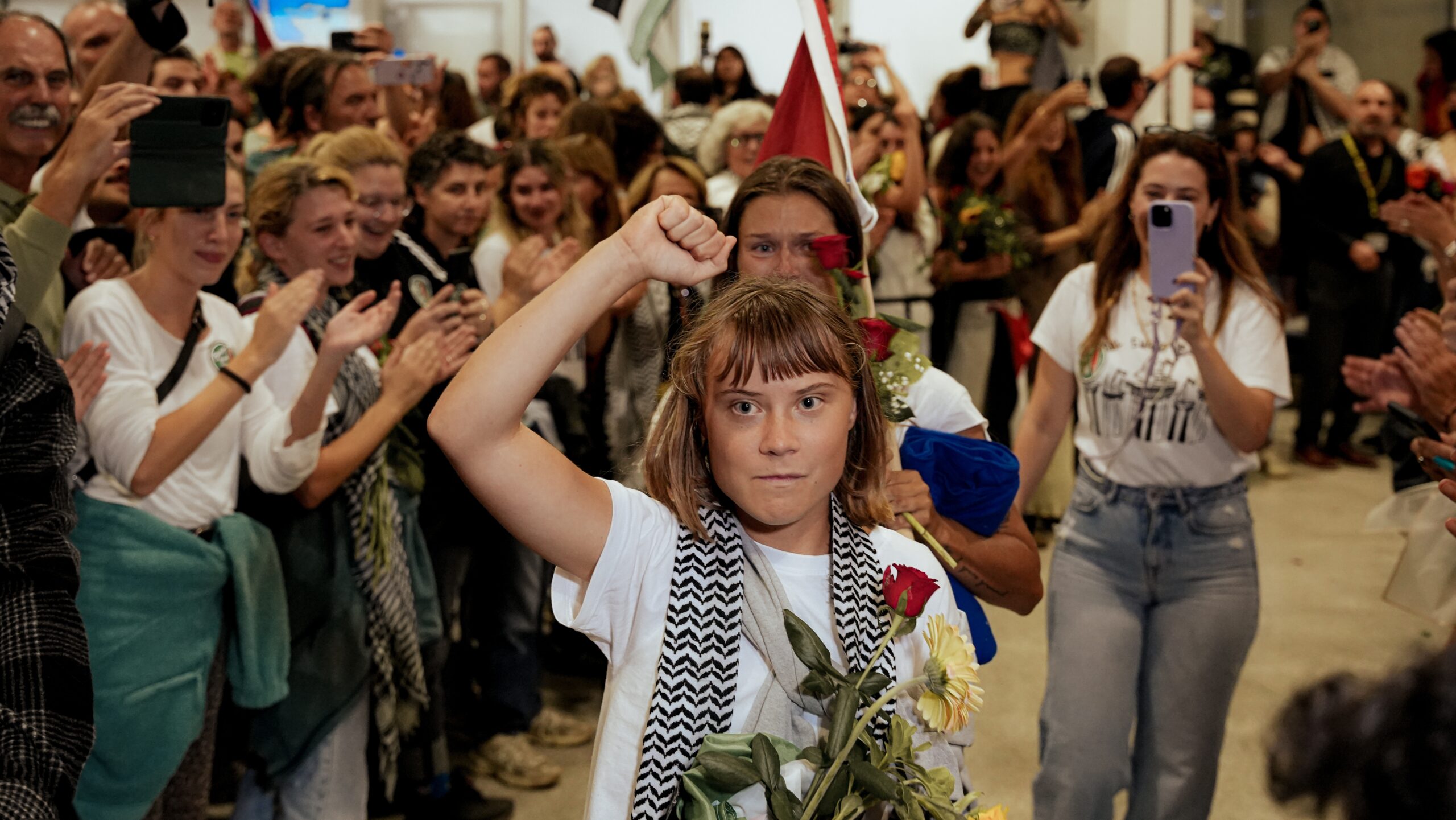Anti-Zionist radicals on the boats don’t seem to care about the residents of the Strip any more than Hamas terrorists do.
A close look at the boats used by anti-Israel extremists aboard the so-called “Gaza Flotilla,” which attempted to evade Israeli navy vessels and land in the Gaza Strip on Yom Kippur, reveals much about their true motivation—something that both journalists and Israel’s supporters have missed, though should not have.
You might have expected that the banners on the ships would feature messages like “Stop the Blockade,” “Feed Gaza” or even “Stop the Genocide,” but the boats I saw in the photos had no such messages at all. That’s because the anti-Zionist radicals on the boats don’t really care about the residents of Gaza any more than Hamas terrorists do, and they know that in reality, there’s no genocide or starvation.
The signs on the boats that I saw read:
“Free Gaza”
In response, it must be noted that before Oct. 7, 2023, no Israeli soldiers were in the Gaza Strip when Hamas launched its terrorist invasion. The disengagement of Israeli civilians and the withdrawal of Israeli soldiers were completed by Sept. 12, 2005.
“Free Palestine”
One is left wondering what these signs mean, but the meaning should be clear: Mahmoud Abbas, now 89, has been chairman of the Palestine Authority since 2004. And to this day, the PLO, which created the P.A., still features a map of “Palestine” that leaves zero room for a State of Israel of any size—“from the river to the sea.”
“Leve Palestina”
This last message—“Leve Palestina”—may be the most telling to understand the true motives of these haters. It almost certainly refers to a 1979 song that has this hate in its very first line: “Long live Palestine and crush Zionism. Long live, long live Palestine.” The song infamously glorifies violence and terrorism, stating: “And we have thrown stones at soldiers and police; and we have fired missiles.” In an August 2024 unabashed tribute piece about the song, reported by Al Jazeera, it seems that the song “has gained new life since … Oct. 7,” and YouTube videos with it have had millions of views.
In the first line of its coverage of the flotilla on Oct. 1, The New York Times reported: “Activists on a flotilla of vessels carrying humanitarian aid,” and later, “their mission is to deliver food during the humanitarian crisis there.” It should be plain that the fanatics’ only goals were to provoke Israel and ensure that the media continued to portray Israel as the only bad actor in the current war with Hamas. The Times and others complied and never analyzed the signs the ships carried.
And news reports said the ships carried only a nominal amount of actual aid; the effort was more symbolic.
The official website for the flotilla spells it out: “Our efforts build on decades of Palestinian resistance.” Despite claims of nonviolence on the part of the Israel-bashing Sumud flotilla fanatics, “Palestinian resistance” has meant one thing since the 1964 founding of the PLO (when Gaza was occupied by Egypt and Judea and Samaria was occupied by Jordan), and that one thing is violence. Are there any leaders advocating for nonviolence among Palestinian Arabs? If so, where are they? Such figures rarely make headlines.
All of this reminds me of the quote below from a 2001 book, Eyes Upon the Land (Part 1): The Principles Underlying the Arab-Israeli Conflict, adapted by Eliyahu Touger from the Sichos in English Collection. It should have received much more attention from Israel’s supporters than it did, especially in light of the extremist flotilla news, as well as the recent decisions by far too many nations to recognize a nonexistent “State of Palestine.”
It said: “There is a fundamental argument that must be dealt with. At the bottom of all the Arab rhetoric lies one basic claim: ‘You are intruders. This is our land. We had been living here for centuries, and then you decided to take it from us.’ Once it is established that the Jews have a valid right to the Land of Israel, then the violence, hatred and disregard for life that has characterized the Arab position can be judged for what it is. Unless that right is established, the Arabs will always claim that they have a valid goal: reclaiming a land that is rightfully theirs. And once validity is granted to their goal, the debate whether all means are acceptable to attain it or not is one of philosophy.”
Israel’s supporters and advocates must do more to educate the public about the Jewish people’s authentic ownership of the land of Israel. It is absolutely crucial.
** This article was originally published on JNS.org **





